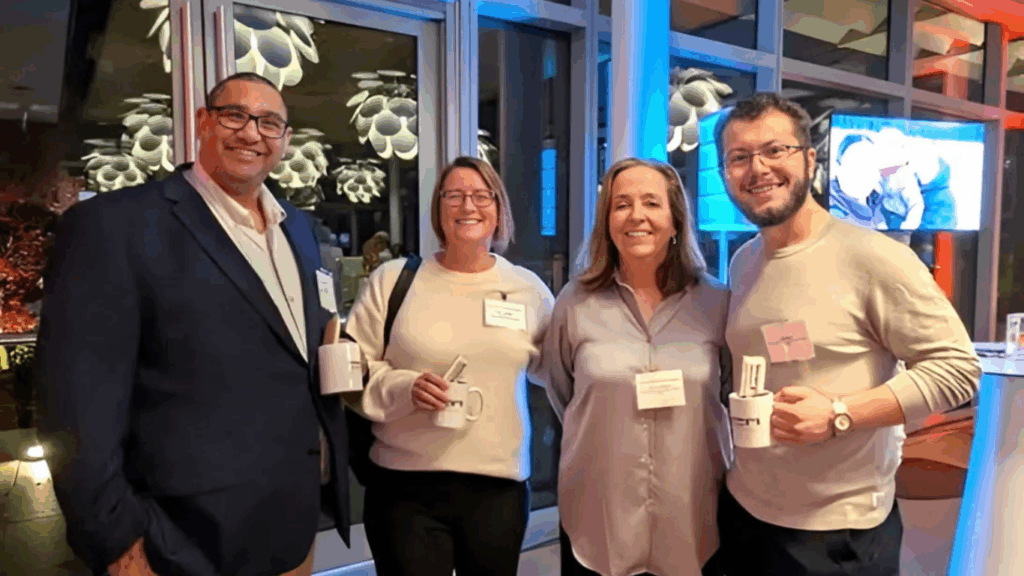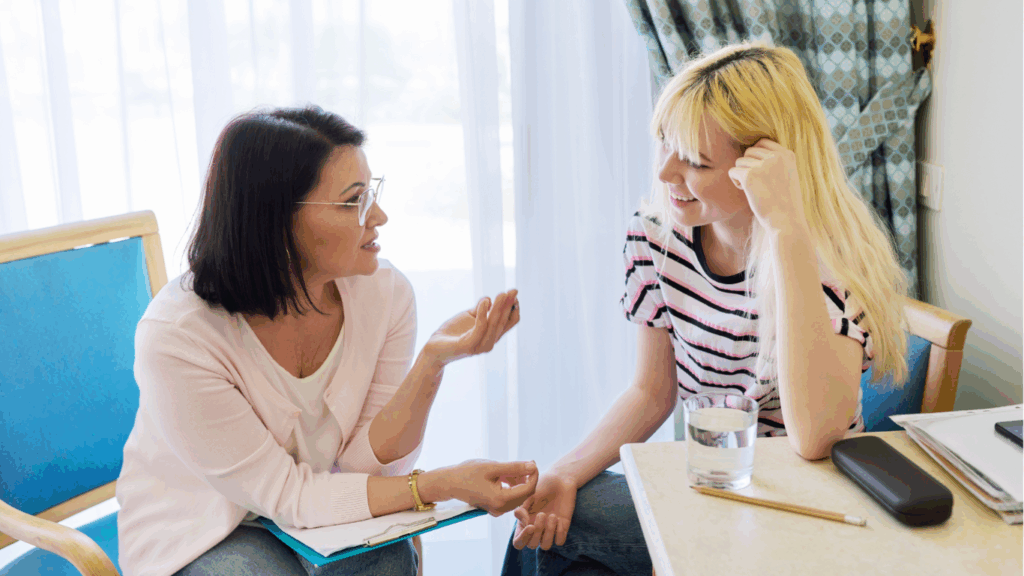Social worker Anne Melcombe is a big believer in teen adoption. Why? Because she knows that teens want families and that there are families who want to adopt teens. In this article, we meet some of those parents and the kids they will adopt.
Anne Melcombe once asked a group of former foster kids if they would have liked to have been adopted. One man, 23 years old, 280 lbs, and covered in tattoos, held up his hand and said, “You bet your ass I would have liked a family. I still would!”
Now, years later, one of Anne’s jobs as the coordinator of the Fraser region’s Wendy’s Wonderful Kids program is to find adoptive parents for teens. She’s never forgotten that tattooed young man—when she hears comments that by the time kids reach the teens years they don’t want to be adopted, or no one would want to adopt them, he always springs to mind.
Before it’s too late
The teen years are generally some of the most turbulent. This is also the time during which children in foster care are moved most often. Foster parents can become overwhelmed and social workers often opt for moving the teenager when things get rough. This can set off a downward spiral which too often ends up in the teen dropping out of school, engaging in risky behaviour, and becoming street involved and homeless.
Parenting a teen
“Too often people assume that teens in foster care are monsters and that they are in care because they’ve done something wrong, which is not the case,“ says Anne. “There’s also the assumption that people only want to adopt infants or young children. More and more teens are being found families and there’s some very inspiring work being done, especially in the United States.”
Anne has already had some encouraging success. “To do this work you have to think creatively in terms of how you find the right parents and in how you work with the teens—who very often insist they don’t want to be adopted,” says Anne. “But they say they don’t want adoption because they are scared—it’s not a lack of desire for a family. They also often don’t understand what adoption is, and they may think it will conflict with their loyalty to their foster parents or birth family. It has to be carefully explained. Social workers who have teens on their caseload also need to take a very individual approach depending on the child and the circumstances. There’s no blueprint for this sort of adoption.
Get creative
Explaining adoption to Blake, a teen on Anne’s caseload, was challenging because Blake identifies family with the idea of insecurity—he spent most of his childhood being swapped between family members, or in foster care. Persuading this particular teen that a “family is forever” was rather a hard sell.
Yet Blake was clearly a candidate for adoption, and Anne had the job of making the idea palatable to him without a heavy hand. “If there’s one thing you have to be if you are doing teen adoption, it’s creative,” laughs Anne. In Blake’s case, Anne found him a new parent by the backdoor. She arranged for him to spend some leisure time with Geoff, an approved adoptive parent with experience mentoring teens. The arrangement was not formally connected to adoption, and Geoff committed to remain as a volunteer friend and mentor to Blake whether or not adoption was the eventual outcome.
The friendship blossomed and, after about five months, Blake actually asked Geoff if he would adopt him. Not long after, although Blake claimed he’d only been kidding about the adoption, he did eventually confirm that adoption was what he wanted. Geoff is thrilled that they had six months to get to know one another fairly well and that it was Blake’s decision to move in. “Blake told me that it was the hardest decision he’d ever had to make,” explains Geoff. “I think he realizes that he now has a permanent family and home. He’s says that calling me Dad will take a bit of an adjustment, but that’s fine with me.” Geoff is taking parental leave when Blake comes home.
Juliet is another teen on Anne’s caseload. Anne found an adoptive parent through the power of suggestion method. In this case, Jenny, a social services professional that had worked with Juliet and was very fond of her, was given a hint by Anne that maybe she might like to be her parent. And that’s exactly what happened.
Though it was hard for Juliet to make the decision, and her foster mom was not supportive of the idea, she eventually decided that she would love to go ahead. Almost a year later, Jenny, also Mom to three adult children, is thrilled that Juliet took the plunge. “Juliet has definitely tested me in everyway possible—she needs to know that I have that unconditional commitment, and she needs lots of reassurance. But on the day the final papers were signed, she started calling me Mom. It’s great to have her around. We laugh a lot and she’s great company. I couldn’t be happier,” explains Jenny. Since the adoption, Juliet has opened up about life in her foster home in a way that makes Jenny especially glad that Juliet is home with her.
Jake is another great example of what adoption can mean to a teen. An outstanding student, who had only recently entered foster care when he came to Anne’s attention, Jake was only months away from starting university. In this case, it would have been easy to just let him go off into his new life. After all, Jake was bright, capable, and seemed confident. “Jake himself thought the idea of adoption was nuts,” says Anne. She adds though, that despite that, he kept checking in with her.
Meanwhile, Anne didn’t give up on Jake either. Once again, she dropped the hint to Maria and Jason, a couple who had just gotten to know Jake, and who were already offering him support and friendship, that he needed a family. They helped Jake move to university, get through all the massive mounds of paperwork involved and supported him through some difficult early weeks. Jake joined the family for Christmas. “When he came here during the holidays, we expected him to go out with his friends all the time,” explains, Maria. “In fact, he hung out with us and the kids for almost all the visit. It was really great for all of us. I don’t know if adoption will be what Jake wants, but our family is certainly not ruling it out. He’s a great kid, and though he was going to university, like most young students, he definitely needs caring, committed people behind him,” says Maria.
No going back
To adopt a teen, says Anne, parents need to be absolutely committed, through thick and thin, no matter what the kid throws at you. Though not essential, it also helps to be an experienced parent, and it’s vital to actually like adolescents and to understand that they offer something different to younger children.
“Parenting teens is a bit like tending a plant that is almost all grown. It’s very different from growing a plant from scratch, which is closer to being the parent of a younger child,” says Anne. “In the case of a teen, the plant has already grown and you have to work with what is already there. With younger kids, there’s a lot more hands-on parenting. With teens it’s more emotionally-based care and, as a parent, you have far less control. I love the teen years because it’s the age when you can almost see the adult that is just about ready to emerge, yet there is still time to have a positive hand in helping them to figure out who they are. Teens also offer a different kind of attachment, and it may take many years to develop in the way a parent expects, but it’s well worth waiting for.”
It’s all in the mind
The success that Anne is having in finding families for teens on her caseload convinces her that not only do teens want to be adopted, there are also families who want to adopt them. “The push to adopt teens must come from individual social workers,” says Anne. “They need to have a belief system that teens also need families and that there are parents out there for them—even the most challenging kids, because they too really do want a family.”
To learn more about teen adoption, visit belongingnetwork.com/teen-adoption.





